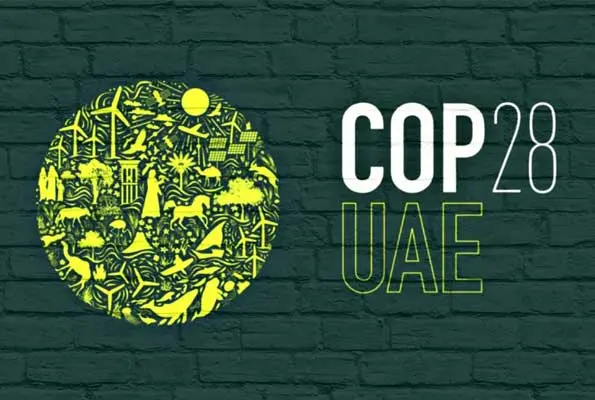In Dubai, a city at the centre of the Middle East where war has been rekindled between Israel and Palestine, the 28th United Nations Climate Change Conference, or COP28, has gotten underway. Even though the United Arab Emirates, the host nation, claims to be laser-focused on climate issues, stakeholders fear that the conflict may distract climate change discussions.
Racquel Moses, CEO of the Caribbean Climate-Smart Accelerator and United Nations global climate ambassador for the Caribbean, told the media platform Devex that “it’s getting more and more frustrating. The table itself is at stake, but we’re all fighting over the pieces on it.”
Seven weeks after the war broke out, Israel and Hamas held a four-day humanitarian cease-fire and exchange of hostages. Though it has been extended for a further two days, the deal was only temporary, and it is unknown what would happen after it expires.
It will be difficult to ignore in Dubai, even though a lot might change in the coming days. Few people think the battle will end by the time COP28 gets underway.
Many people consider the UAE to be an important regional actor. It joined the BRICs earlier 2023, repaired its relations with Israel in 2020, and currently enjoys a temporary place on the United Nations Security Council.
Sultan Ahmed al-Jaber, the president of COP28 and CEO of the oil company, has reaffirmed his goal to concentrate on climate aspirations ahead of the meeting. According to a European diplomat stationed at the United Nations, “a lot will happen before the COP,” and they anticipate that the UAE will attempt to address the problem before the start of the conference.
At a news conference on November 20, UN Secretary-General António Guterres conceded that it will be challenging to ignore the elephant in the room.
“It is evident that we are diverting attention from the significant obstacles that the global community is confronting regarding climate change,” he declared.
A preliminary list shows that leaders of state or government are anticipated to represent over 137 nations, including Israel and Palestine. The New York Times reported about the absence of the United States President Joe Biden. Washington will be represented by John Kerry, the agency’s special envoy on climate change.
“The table itself is at stake, but we’re all fighting over the pieces on it,” remarked Caribbean Climate-Smart Accelerator CEO Racquel Moses.
One Middle Eastern diplomat told Devex that, given the expected high calibre of attendees, it would be expected that talks about the Israel-Hamas conflict would take place on the conference’s fringes.
The UAE might also attempt to use the conference to advance its cause by participating in peace negotiations. However, a COP28 representative informed Devex that the primary focus still lies in achieving the organization’s objectives.
Climate COP regular Niyanta Spelman, CEO of the US-based NGO Rainforest Partnership, said she thinks delegates will concentrate on climate-related problems.
“We all have different areas of expertise, and most of us can compartmentalize,” the official remarked, while expressing optimism about the conversation remaining focused.
However, she also admitted that earlier talks and agreements made on climate change have already been negatively impacted by the conflicts in Gaza and Ukraine.
“After the COVID-19 pandemic started, we made a lot of progress in Glasgow, but the Ukrainian war caused us to retreat a lot from our goals and aspirations,” Spelman noted.
Moses is also concerned that the geopolitical rifts created by these disputes may affect climate talks.
She observed, “Just as we did with Ukraine, we are seeing the void brought about by the Gaza-Israel conflict. It’s frustrating that we’re having less cohesiveness instead of more; we’re also having less peace and collaboration.”
Apart from the possible diversion from the objectives of the summit, conflicts also directly affect climate change due to environmental devastation, greenhouse gas emissions from military vehicles, and reconstruction-related activities.
There are health implications as well. For instance, research conducted in Iraq by Brown University identified the US Department of Defense as the world’s largest institutional oil consumer and connected increases in cancer, birth abnormalities, and other illnesses with environmental damage and chemicals associated with the conflict.
Spelman said, “I would love to create a chart showing how much money is spent on military spending worldwide compared to climate change. We do it at our own risk, so I would love for us to start questioning some of our choices and decisions.”
Delegates to Dubai are nevertheless committed to advancing the climate-related commitments and the loss and damage fund.
Speaking candidly about the global stocktake, Moses stated that attendees will need to “have a bit of a reckoning around where [we are] against where we need to get to, and then be super focused on what are the changes that we need to make to get there. I’m hoping this turns into a turning moment for us.”



